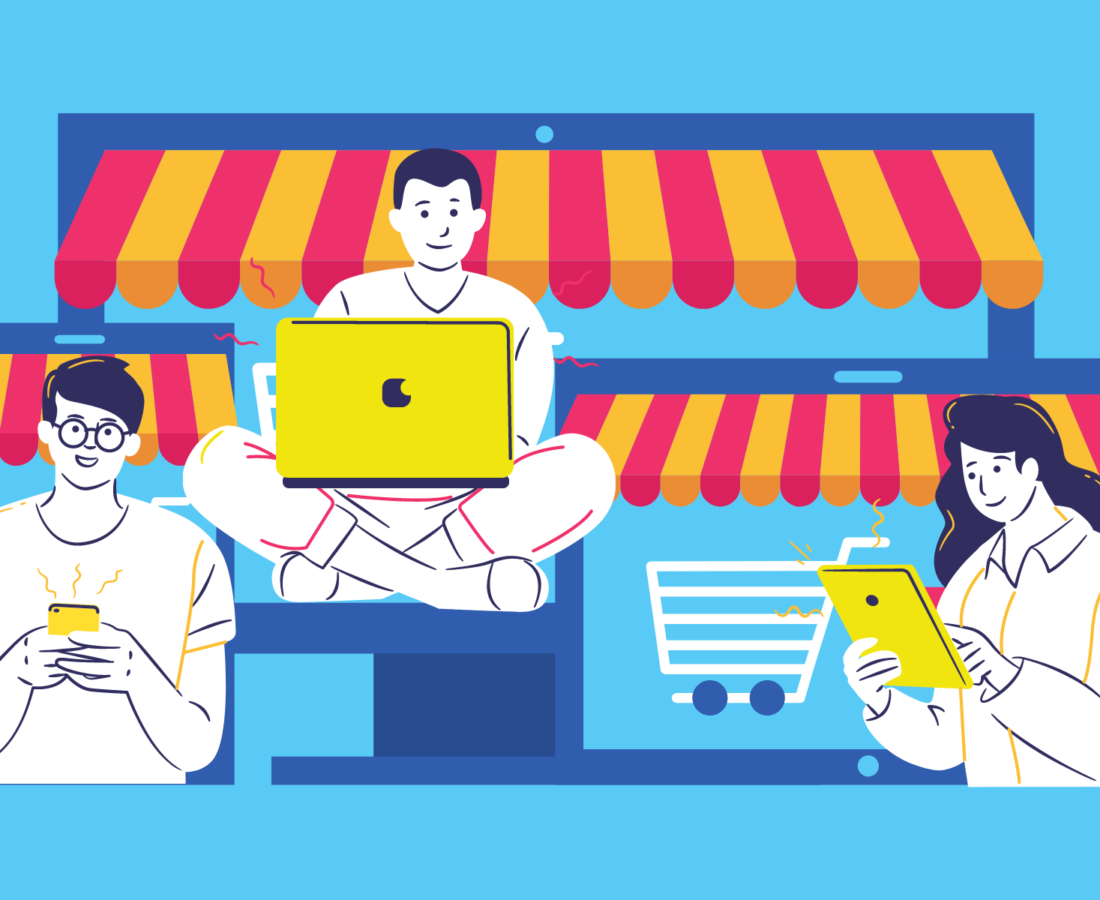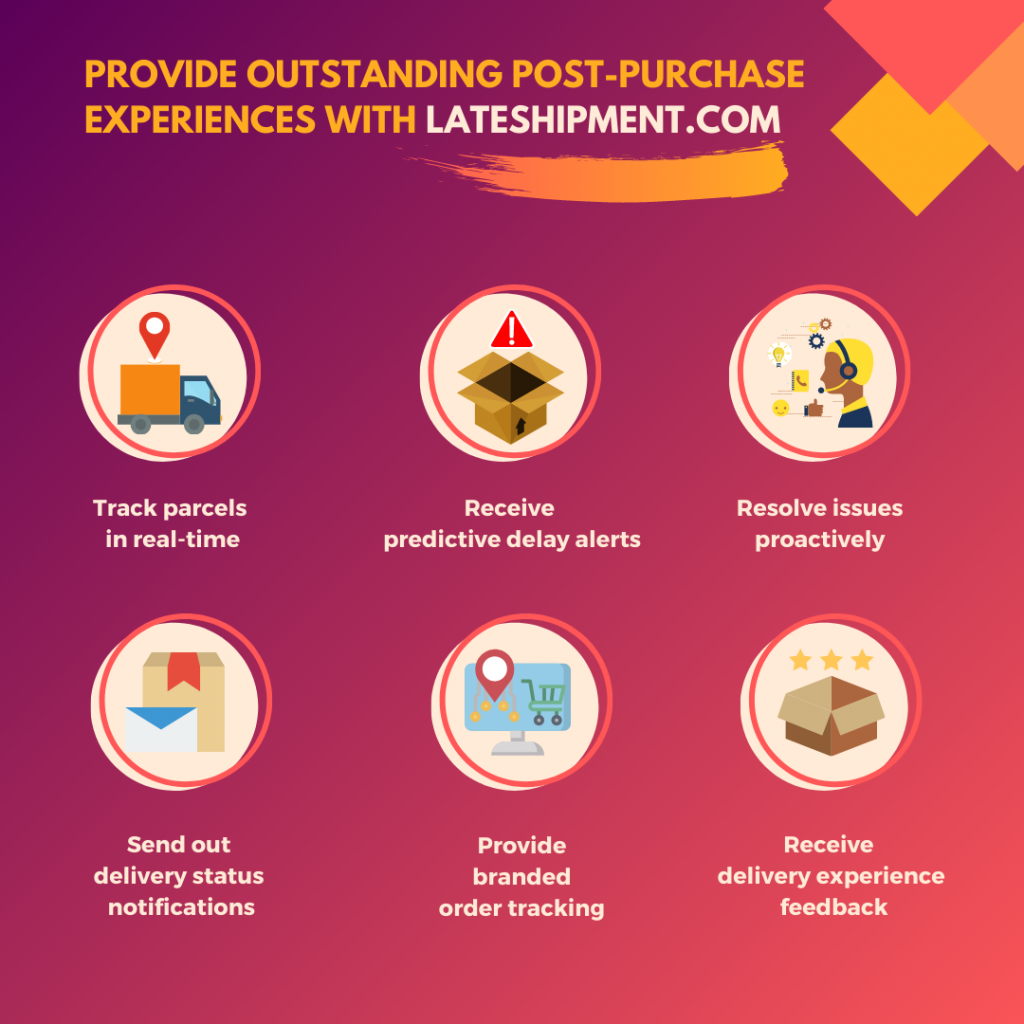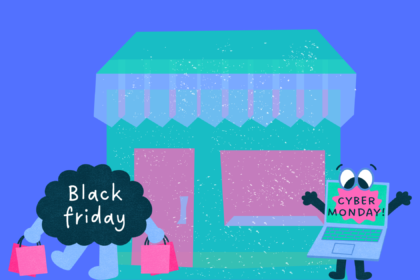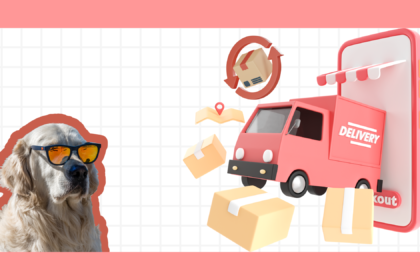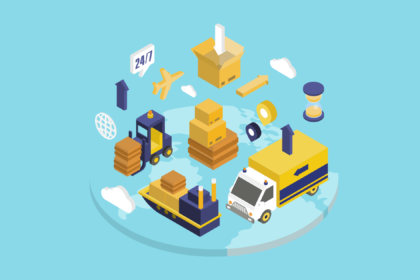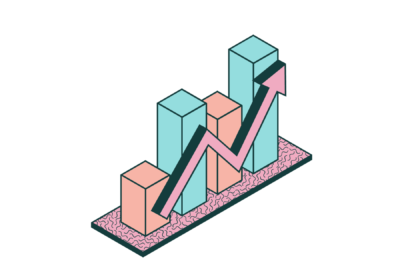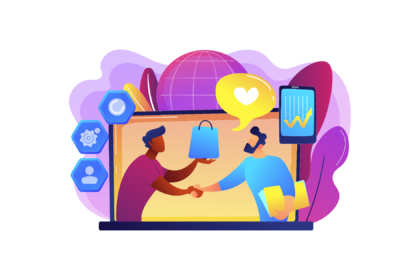Everybody loves memes…
It really helps us take a breather from the pressures of work and cool off for a moment. And the best part, it’s a different joke that cracks us up every time!
Every week there’s a new meme trending online – From Bernie Sanders to a ship stuck in the Suez Canal.
eCommerce works exactly the same way. Now and then there come new trends that shape the industry for the future.
But you might wonder why we’re talking about change now?
Well, that’s because 2020 (the year of the pandemic) has drastically accelerated these changes, ergo leaving a lasting impact on businesses in the longer run.
Let’s not waste any more time and dive right into the eCommerce trends for 2021 and how they can help you improve your online business in terms of sales, CX, and customer loyalty – to thrive in 2021!
eCommerce is Growing (Higher, Further, Faster)
Like we mentioned earlier, the COVID-19 pandemic has largely accelerated the shift to eCommerce, and guess what? It’s still growing and doesn’t seem to be slowing down even as the world returns to normalcy.
Amidst the wave of digital transformation and innovation in retail, eCommerce sales grew an astounding 30% in 2020, a number expected to grow in 2021 and in the years to come.
This makes it clear that customers who ordered from an online store for the first time in 2020, don’t plan on going back to a physical store anytime soon.
Take away – Despite the surge in online orders, it is practically difficult for SMBs like yours to compete with companies such as Amazon and Walmart, which have established dominance over the eCommerce market.
But that doesn’t mean you just sit around and wait for things to happen your way! You can start by growing your online presence by enlisting yourself in eCommerce marketplaces of your niche (take advantage of the high traffic reach).
However, you must keep in mind that entirely relying on these marketplaces can limit your brand’s growth (as you don’t own the customer data).
A good ploy would be to just sell limited products on such marketplaces and drive visitors to your site by intriguing their curiosity.
Hybrid (Omnichannel) Marketing is the Future Now
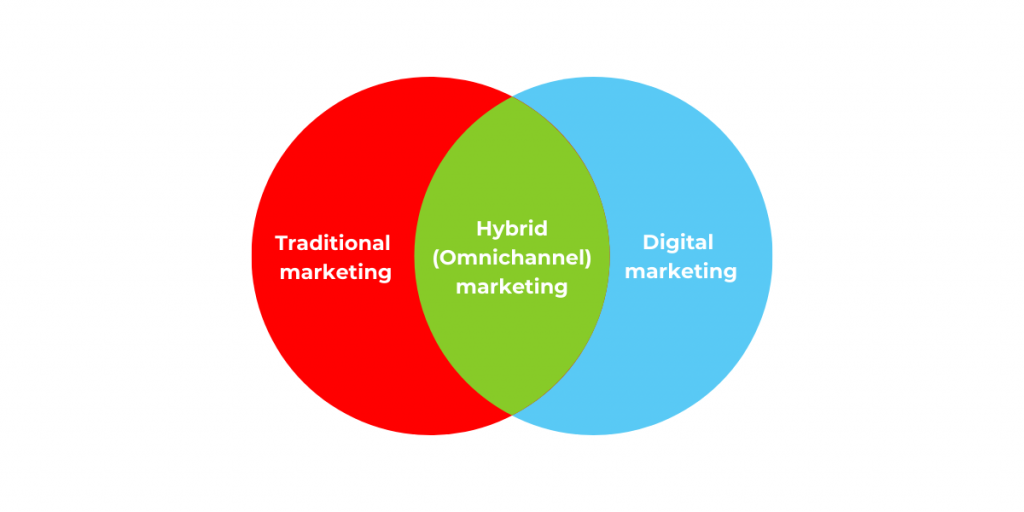
In this IoT era, growing eCommerce brands can follow the footsteps of companies like Amazon and give customers what they want – a seamless shopping experience no matter what channel they’re on.
And how you can do that, you ask?
Hybrid marketing (also known as omnichannel marketing) can enable businesses like yours to do just that.
Take away – With hybrid (omnichannel) selling becoming the norm, you can make use of public cloud platforms, which help you to collect customer data across all platforms.
You can then make use of headless eCommerce services that enable brands to improve their customer experience and communicate with customers across multiple channels.
Start with the data you have on your customers and create ideal customer personas to guide each customer’s personalized content and platform.
91% of consumers are more likely to shop with brands that provide relevant offers and recommendations. – Data from Accenture
For example, you can display a social media advertisement for a user who has just browsed your website and send out retargeting emails to a customer who has abandoned their cart.
You can also focus on the channels where your customers go the most and sell to them there.
The Battle for Speed (⚡) is Done!
The massive surge in eCommerce has also led to advancements in shipping & delivery as well.
The pre-COVID trend of same-day delivery is done! Customers no longer eye faster delivery but are now into flexible delivery options.
If you are uncertain about how you plan to do that, worry not!
We’ve got the right solution for you 😉I
Take away – While the impact of COVID-19 still in place, businesses are still recovering from the supply-chain restrictions.
With smaller inventory and a higher no. of orders, businesses can effectively capitalize on the “2-3 day delivery” trend to keep customers satisfied.
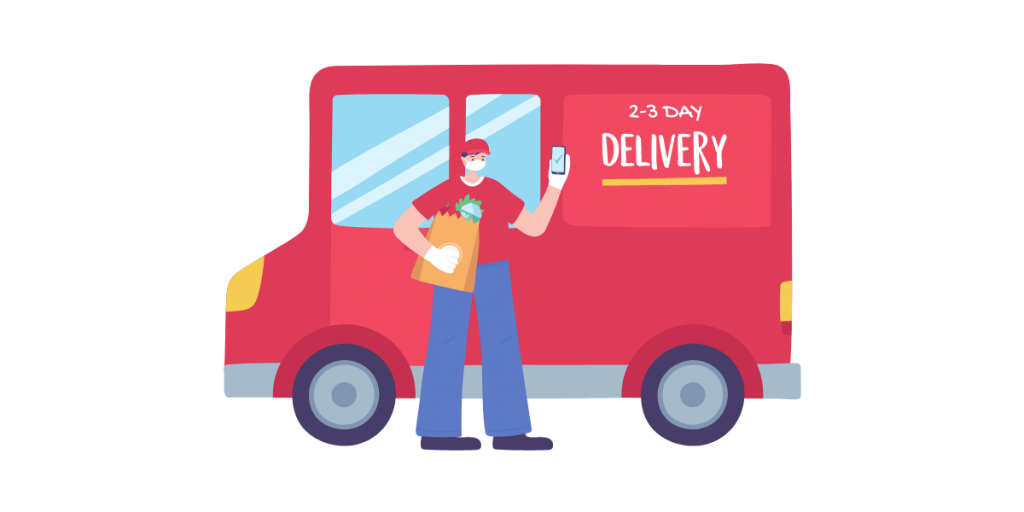
On the other hand, customers waiting in anticipation for their orders would lose their peace of mind, if say anything was to happen to their package.
They feel that is the responsibility of the business to mitigate their anxiety and keep them informed of their package status.
And businesses can do just that by making use of last-mile technologies and enable real-time package tracking, to have an edge moving into 2021.
Stellar Customer Support = Enhanced Overall Shopping Experience
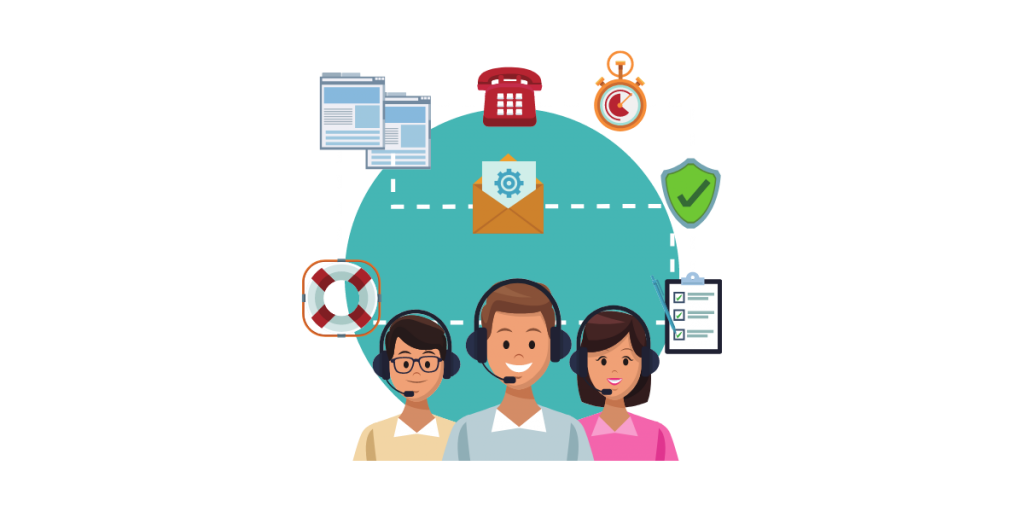
Despite everything that happened in the past year, one thing that your customers expect to have little or no room for error would be your customer service.
A recent survey shows that post-COVID-19, 59% of consumers will care even more about the customer experience than they did “before” when deciding to buy.
That gives businesses of today, all the more reason to invest in great customer service to remain competitive.
Take away – Customer service’s future will be to provide omnichannel customer support – anytime, across channels.
Omnichannel customer support – Not just live chat, brands need to connect with their customers on platforms they prefer, be it social channels or emails, or even SMS.
Customer support will also influence sales – A great customer service will not just help you survive but will play the key differentiator between you and your competitor as
- 75% of the customers say they will shop with and recommend a brand they trust rather than a brand i.e hot and trendy.
- On the other hand, 80% of consumers will switch to another company after just one poor customer experience
Therefore, businesses will have to keep in mind to provide an excellent personalized customer support experience if they want to develop loyalty and add value to customer retention.
Sustainability Will Be given Higher Priority

Sustainability is no longer a USP of select brands to attain popularity. Green consumerism is slowly becoming the norm as 65% of buyers say they will buy from brands that advocate sustainability.
Take away – Today’s consumers don’t just desire transparency in what they buy but expect it.
Not just in your products, they want sustainability to be your mantra across manufacturing, packing, and even transportation.
You can start by
- Rolling out a one-off sustainable product
- Reducing the amount of packaging waste, and
- Informing your customers on how they can recycle your product after use.
You can also align your brand with an NGO that advocates for a cause such as sustainability or cruelty-free or partner with an influencer who advocates ethical buying.
The Post-purchase Phase Will Be the Deciding (X) Factor
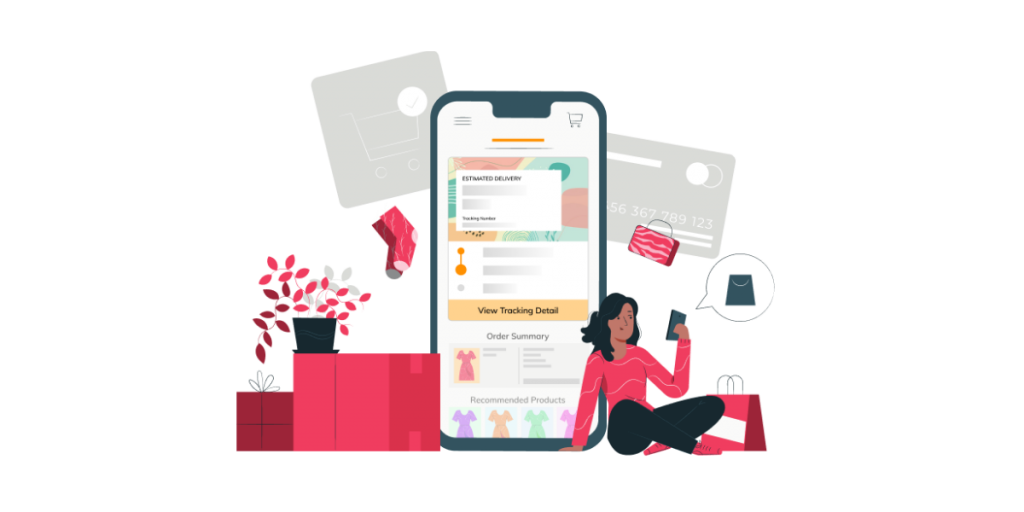
Businesses get 6-8 touchpoints in the post-purchase to interact with customers and engage with them. These critical touchpoints are opportunities to strengthen customer relationships, build trust, and brand loyalty.
However, when you do not pay heed to your customers at this stage, you leave them at the mercy of your shipping carrier. Which in turn widens the CX gap between you and your customers, resulting in far more serious consequences.
And if you think these are just trivial, you must understand that the post-purchase phase takes up 50% of the overall order experience.
Take away – There are just 3 common areas that you need to pay attention to in order to take control of your post-purchase experience and plug the existing gaps.
- Keep customers in the loop about orders in transit (more than just sending tracking numbers!)
- Be the first to learn about every delivery issue (and act on it!)
- Grab every (post-purchase) opportunity to engage with customers. Earns both additional revenue and loyalty!
Provide Outstanding Post-purchase Experiences with Lateshipment.com
For businesses like yours, we at LateShipment.com, have built the world’s only logistics cloud tool that helps you reduce shipping costs by up to 20% and provide stellar post-post purchase experiences to customers at scale – focussing steadfastly on the last mile, typically the most opaque part of the logistics chain.
With our Delivery Experience Management (DEM) Platform, you can effortlessly:
> Track parcels in real-time – Monitor your outbound & inbound shipments across multiple shipping carriers on a centralized window, in real-time
> Receive predictive delay alerts – Pay attention to daily deliveries with predictive delay alerts and more on a purpose-built dashboard for support reps.
> Resolve delivery issues proactively– Proactively communicate with customers to prevent them from having bad experiences due to delivery failures.
> Send out delivery status notifications – Send custom or automated delivery status notifications to your customers for events like “shipped,” “attempted,” & “delivered.”
Not just that, LateShipment.com additionally helps you:
> Provide branded order tracking – Build fully customizable order tracking pages for your customers to improve brand recall and sales.
> Receive delivery experience feedback – Gather feedback from customers about their delivery experience. Measure and optimize shipping operations.
Conclusion
With some of its effects still reeling in, 2020 will be a year that nobody will forget, especially people in the eCommerce industry. Stepping into 2021 and almost crossing the first quarter, these trends which have passed on from 2020 are still making waves in the current year.
Taking advantage of these trends would make 2021 memorable — but for the positive reasons.
When applied, these strategies will surely positively impact your sales, CX, and customer loyalty.
